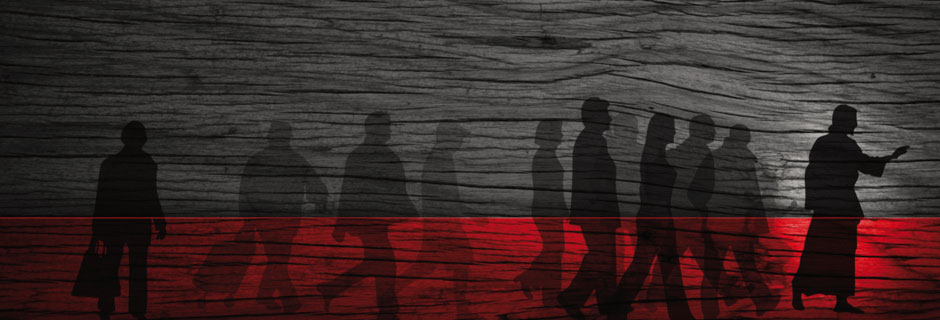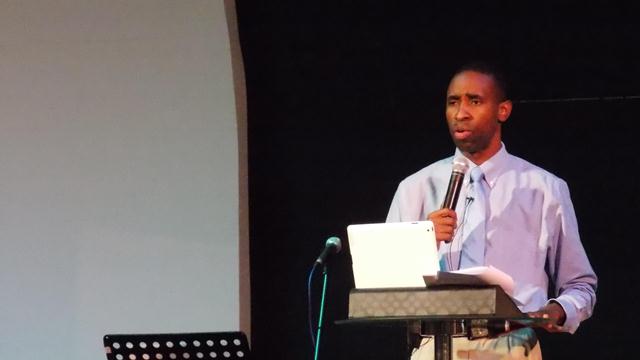
In response to a recent video released by BuzzFeed called “I’m a Christian, but I’m not…” Mollie Hemingway of The Federalist wrote this in her response regarding five glaring problems with this video: “When you build your faith around what type of Christian you’re not, your faith is not built around Christ.”
She couldn’t be more right. Comprising of a group of young people who declare what they are not (i.e., homophobes, intolerant, uneducated, close-minded, judgmental, etc.), despite being Christians, BuzzFeed’s video, which seeks to cancel out stereotypes against Christians unfortunately brings almost zero glory to God.
In fact, Hemingway equates these individual’s declarations to the Pharisee’s prayer in Luke 18 when he said, “God, I thank you that I am not like other men.” And what did Jesus have to say about such a mentality? He condemned it. He warned us against thinking we are better than others, and told us instead to be like the tax collector who recognized his sinful nature and relied wholly on God’s mercy.

Since its release, the video has gone viral, inciting all sorts of responses both from those who identify themselves as Christians, and those who do not. Which begs the question, “What does being a Christian even mean to people?” When you say that you’re a Christian, what does that mean to you? Is it an identity? A tradition? A culture? A club?
Hemingway points out in her article, first and foremost, that Jesus is not mentioned in the video. At all. She also quotes Michael Wear who tweeted, “The Christianity of too many millennials is built around proving what type of Christian we are not. This is not edifying.”
He is correct, and this is a big problem. Even though this video and all its responses may be directed more toward the American audience and seems to be targeting the “White American Evangelical” culture, it is a good wake-up call even to us on the other side of the globe to evaluate if this is true of us.

It is important for us to take a step back and ask ourselves if our goal as Christians is about proving to the world what we think Christianity is or isn’t about, or if we are simply living for Christ.
Because here’s the deal. God does not need us to jump to His defense. If He wanted to defend Himself, He would. But that’s not the way He works. Imagine if God retaliated and took on a defensive position every single time we humans raise our fists at Him. Imagine if God got mad and said, “Eh! Who said I’m like that? I’m not like that, ok?!”
What do you think would happen if God was constantly trying to justify His actions and explain why He does the things He does? When Job was afflicted with so much pain and sorrow, do you think he would have worshipped God in the end if God had said “I’m sorry”?
Imagine if God had said, “I know it hurts, but I felt that it was for the best. Please don’t be mad at me. I’ll pay you back, I promise. I’ll give you more than you had before. Just don’t be upset with me. Cos I’m really not a cold-hearted God for letting you suffer. You have to believe me.”

I know I wouldn’t worship a God like that. I don’t want a God I have to forgive. I have enough of that to deal with among my fellow humans. I want a God who is completely in control and knows exactly what He’s doing. I want a God who has nothing to apologize for because He doesn’t make mistakes—even if the circumstances grieve Him.
I want a God who can say, “Where were you when I laid the foundations of the earth?” and effectively shut up all my incessant questions that are so limited by my human understanding. I want a God who says, “I’m Sovereign. Trust me.” No excuses. No rationalization.
Instead of trying to convince us of all the things that He is not, God simply shows us who He truly is. He reveals His glory and His majesty through creation. He encounters each of us on a personal level through His Word, He sent His Son as an expression of His great love for us.

Defensiveness stems from a place of insecurity. It reflects a lack of confidence—a need to protect against objections and a need to clarify perceived misconceptions. It is unattractive, and God is too big to succumb to it.
And so when it comes to matters of the Christian faith, we need to understand that just as God does not have to be defensive because He knows exactly what He’s about, we don’t need to be defensive on His behalf either.
Too often, we Christians mess up and paint an ugly picture of ourselves because we’re trying so hard to tell the people around us that Christians are not what we think they think we are.
But God never asked us to do that. He never said, “Go and defend your faith.” He never said, “Make sure that people have the right impression of Christians.” In fact, He said, “If the world hates you, keep in mind that it hated me first” (John 15:18). He said, “Your love for one another will prove to the world that you are my disciples” (John 13:35). He said, “Therefore go and make disciples of all nations.”

God’s focus is to glorify His name, and so should ours. If we concentrate more on what people think about Jesus and less on what people think about Christians, more people will get to know Jesus and less people will hate Christians. We don’t have to say very much about Christianity and what we believe if we simply let our actions speak for ourselves. Let people think what they want to think. Our job is to show them otherwise.
To be a Christian should mean, “to be a Christ-follower.” To be a Christ-follower is to literally live for Christ, in accordance to His will that we honor and obey Him in all we say, think, and do. That’s all there is to it. No buts, no questions. If we love and serve Him, we stand firm in all His precepts, and demonstrate His love so that others will see and know that He is God. That is how we win people for Jesus.
There is no need to be defensive of our faith simply because we serve a God who owes no one any apology. Because God is confident in Himself, we can likewise be confident in Him and trust that everything He does is in accordance to His perfect character. The Lord our God is our defense. Our assurance of His sovereignty cancels out any obligation we may have to be defensive.
|Share The Good News|
Esperanza Ng




Leave a Reply